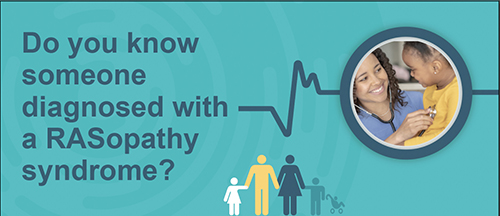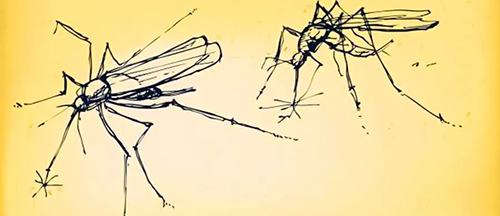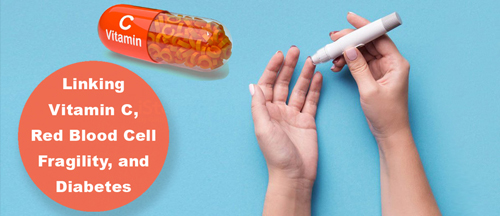Updates from the Patient Recruitment Office
Researchers at the National Institute of Diabetes and Digestive and Kidney Diseases are looking for healthy volunteers from 18 to 45 years old with a body mass index (BMI) greater than or equal to 18.5 to participate in a study investigating how dopamine affects body weight and eating behavior.
Participants must be able to visit the Clinical Center for up to five consecutive days to pick up food (or up to a five day admission for meals) and then stay up to six days for inpatient testing. For more information, refer to study 18-DK-0132 and call the NIH Clinical Center Office of Patient Recruitment at 866-444-2214 gov (TTY users dial 7-1-1), email ccopr@nih.gov or visit https://go.usa.gov/xPTBn.

NIH Clinical Center researchers seek 18-55 year-olds with kneecap pain (patellofemoral or anterior knee pain) for a two visit outpatient research study. We are studying how muscle weakness around the knee may lead to changes in kneecap motion and pain. Compensation provided. Learn how to participate by contacting the NIH Clinical Center Office of Patient Recruitment at 866-444-2214 (TTY users dial 7-1-1) or ccopr@nih.gov and refer to study 13-CC-0099 or visit https://go.usa.gov/xP5mr.

RASopathies are rare disorders caused by a genetic change often diagnosed in infancy or early childhood. People with RASopathy syndromes may have developmental issues, cognitive and congenital disabilities and poor growth. They may also have an increased risk of developing cancer. The NCI RASopathies Study will look to better understand medical conditions in individuals with RASopathies while allowing them to learn more about what causes RASopathies and how genetics and environmental factors contribute to cancer development in affected patients. They hope to learn how to better screen for, detect and treat these syndromes using this data.
Doctors at the National Cancer Institute are now recruiting patient volunteers diagnosed with specific RASopathy syndromes. If you or a relative have been diagnosed with a RASopathy syndrome and want to know if you qualify to enroll for this study, contact the Clinical Center Office of Patient Recruitment at 866-444-2214 (TTY, TeleTYpe users dial 7-1-1) or email ccopr@nih.gov and reference study # 20-C-0107
Online

People with alcohol use disorder (AUD) have trouble controlling their drinking and cravings for alcohol. Studies have found a relationship between ghrelin, commonly called the hunger hormone, and alcohol cravings for those with AUD. Researchers at the National Institute on Drug Abuse are now testing an investigational drug, GLWL-01, to change the activity level of this hormone and determine if it can help decrease craving for alcohol. If you are 18-70 years old, have moderate to severe alcohol use and are willing to quit, you may qualify to join. The study includes a 21-day stay at the Clinical Research Unit on the Johns Hopkins Bayview campus in Baltimore, Md. Compensation for participation will be provided at completion. To learn more and see if you qualify, contact the NIH Clinical Center Office of Patient Recruitment at 866-444-2214 (TTY users dial 7-1-1), email ccopr@nih.gov or visit https://go.usa.gov/xM6CF for more details. Refer to study 19-DA-N075.

The National Institute of Allergy and Infectious Diseases is looking for volunteers with type O blood to create a supply of malaria-rich blood for future malaria research. Volunteers will be infected with a mild case of malaria, donate their blood for future research and then be treated with a highly effective malaria treatment. Participants may experience mild, flu-like symptoms but will be monitored closely and treated quickly. Volunteers will receive compensation for participating. For more information, call: 866-444-2214, email ccopr@nih.gov or visit https://go.usa.gov/xejfb. Refer to study #000212-I.

The National Institute of Nursing Research seeks individuals who are experiencing fatigue. Researchers want to understand the specific types of fatigue and the causes that may trigger it. Knowing more about fatigue may help us to develop different ways to treat it. Compensation may be provided. For more information call the NIH Clinical Center's Office of Patient Recruitment at 866-444-2214 (TTY users dial 7-1-1), email ccopr@nih.gov or visit https://go.usa.gov/xVxdA. Refer to study 19-NR-0098.

NIDDK (National Institute of Diabetes and Digestive and Kidney Diseases) researchers seek adults with type 2 diabetes to join a study. In this study, doctors will investigate physiology of Vitamin C in red blood cells of diabetic subjects as a function of the presence of glucose in the blood, with and without Vitamin C supplementation. Compensation is provided. For more information, contact the NIH Clinical Center Office of Patient Recruitment at 866-444-2214 (TTY users dial 7-1-1) or ccopr@nih.gov. Refer to study #14-DK-0060 https://go.usa.gov/xyTaY.
